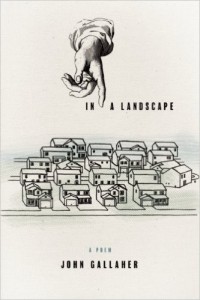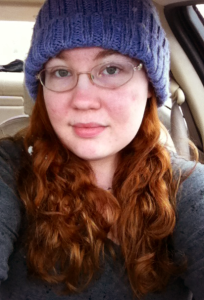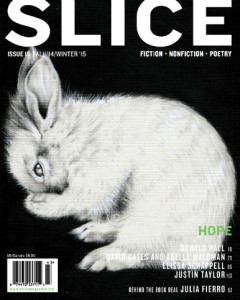Posted by Kate Collis, Creative Nonfiction Reader for Issue 4.2
It’s that time again—the cut-off date for submissions to Gandy Dancer for 4.2 has come and gone and we’re happily reading away. As always, a new semester means a new set of editors who have fresh outlooks. In light of this, I’ve spoken to all four section heads to give readers a chance to get to know them and their ideas about their genre.
Shayna Nenni, Fiction Editor
 Kate Collis: What constitutes a good short story?
Kate Collis: What constitutes a good short story?
Shayna Nenni: A good story will be grounded in a particular place, a place that readers can connect to. Along with that, well-developed characters and compelling situations that illustrate their relationships to each other, to their past, and themselves. I think it’s important to understand where our main character and secondary characters stand with themselves.
KC: What would set a story apart from the rest and make it publishable to you?
SN: I love a good plot. As simple as that sounds, there is nothing more thrilling to me than reading a good piece, skimming ahead because I’m so excited to see what comes next that I literally can’t wait to get to the next line. That, or really connecting with a character. Not necessarily the main character, but any character. To physically feel a connection from reading a piece, that is what sets one apart.

 At once eloquent and colloquial, Gallaher led the room through a collection of several of his “landscapes,” or numbered sections of an essay-poem comprised of seventy-one smaller poems written in about forty days. In one breath, Gallaher projected beautiful lines of poetry; in the next he shocked us with the hard drop of “fuck” or “shit,” his own speech spilling through the written lines, until his divergences began to blend with the poetry, the published lines began to mesh with the deviations from the page, and all of the words became Gallaher—a pure and whole representation of the human being who stood before us. A beautiful moment where this indistinguishable quality seemed to shine was a moment in which Gallaher reflected on a plane crash that killed three of its five passengers. Fluidly, so smoothly it was almost alarming, Gallaher brought this into the room, pointing to the row of five in the front, temporarily turning them into the passengers, the room itself into the plane, ourselves into horrified observers, and reminding us of the fragility and randomness of life, reminding us that “that’s just the way it fucking happens.”
At once eloquent and colloquial, Gallaher led the room through a collection of several of his “landscapes,” or numbered sections of an essay-poem comprised of seventy-one smaller poems written in about forty days. In one breath, Gallaher projected beautiful lines of poetry; in the next he shocked us with the hard drop of “fuck” or “shit,” his own speech spilling through the written lines, until his divergences began to blend with the poetry, the published lines began to mesh with the deviations from the page, and all of the words became Gallaher—a pure and whole representation of the human being who stood before us. A beautiful moment where this indistinguishable quality seemed to shine was a moment in which Gallaher reflected on a plane crash that killed three of its five passengers. Fluidly, so smoothly it was almost alarming, Gallaher brought this into the room, pointing to the row of five in the front, temporarily turning them into the passengers, the room itself into the plane, ourselves into horrified observers, and reminding us of the fragility and randomness of life, reminding us that “that’s just the way it fucking happens.” Sarah Hopkins, Fiction Editor, hopes for stories with sharp focus. She says, “
Sarah Hopkins, Fiction Editor, hopes for stories with sharp focus. She says, “
 4.1’s Creative Nonfiction Editor, Erin Duffy, says, “
4.1’s Creative Nonfiction Editor, Erin Duffy, says, “

